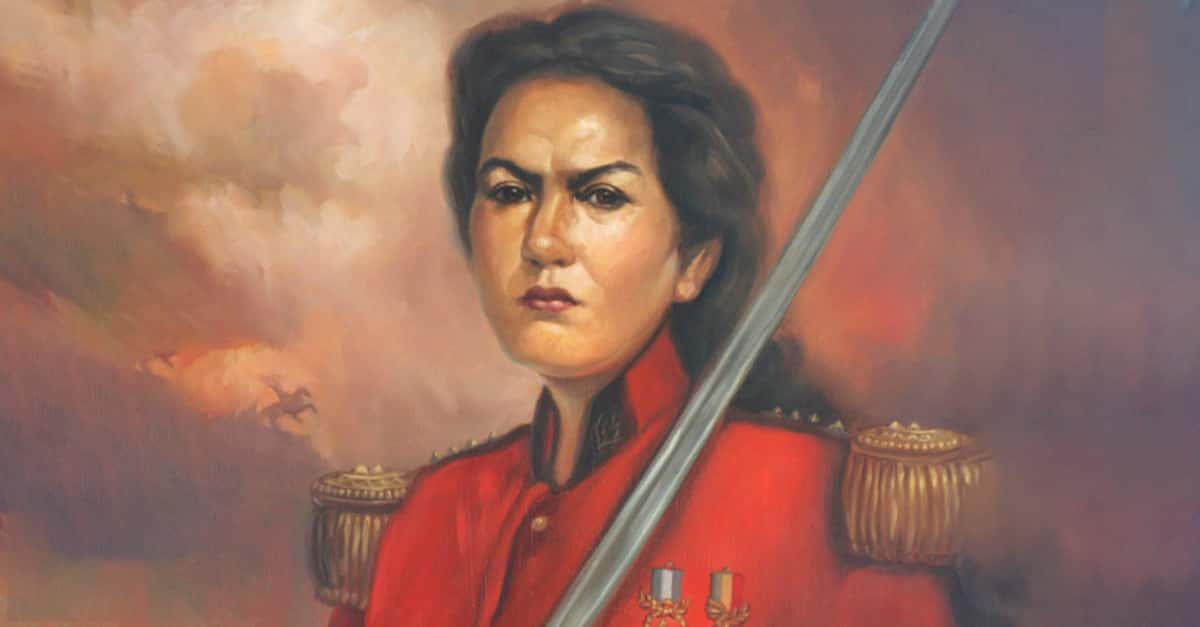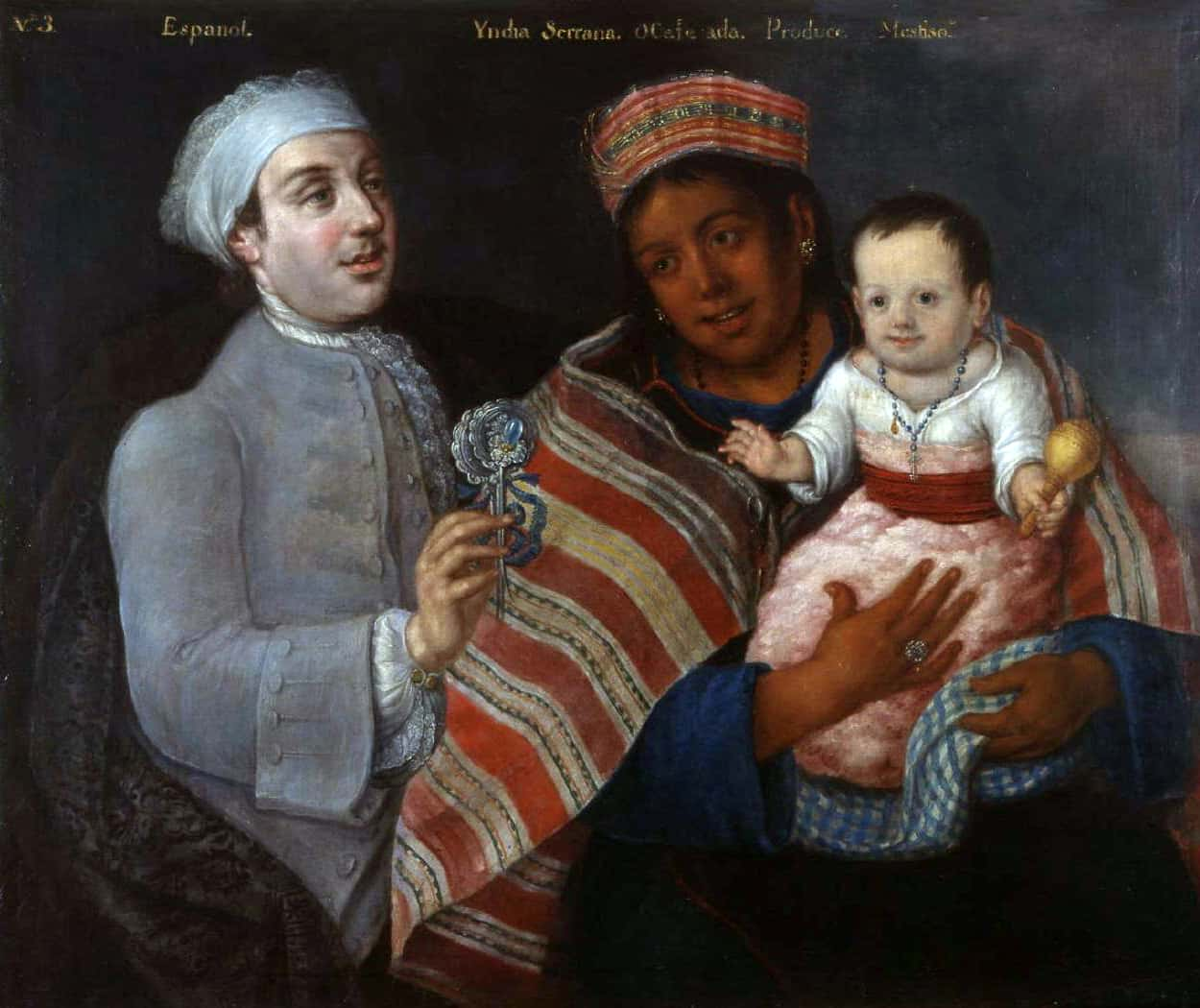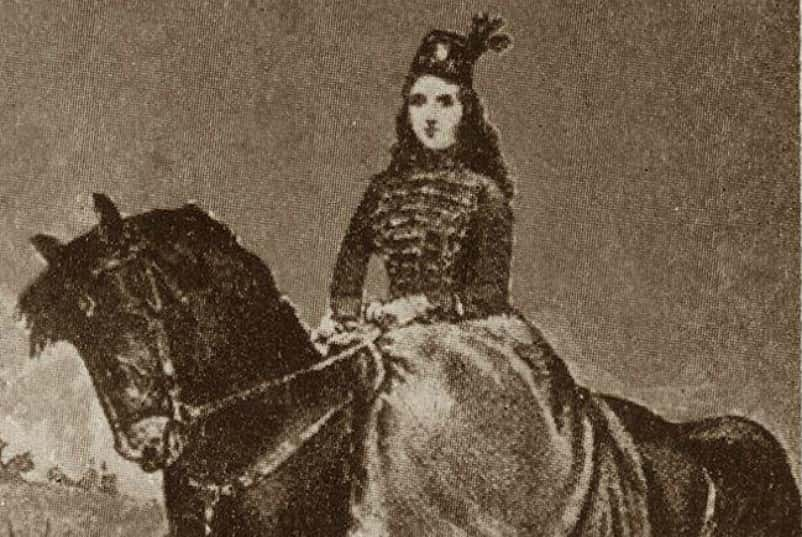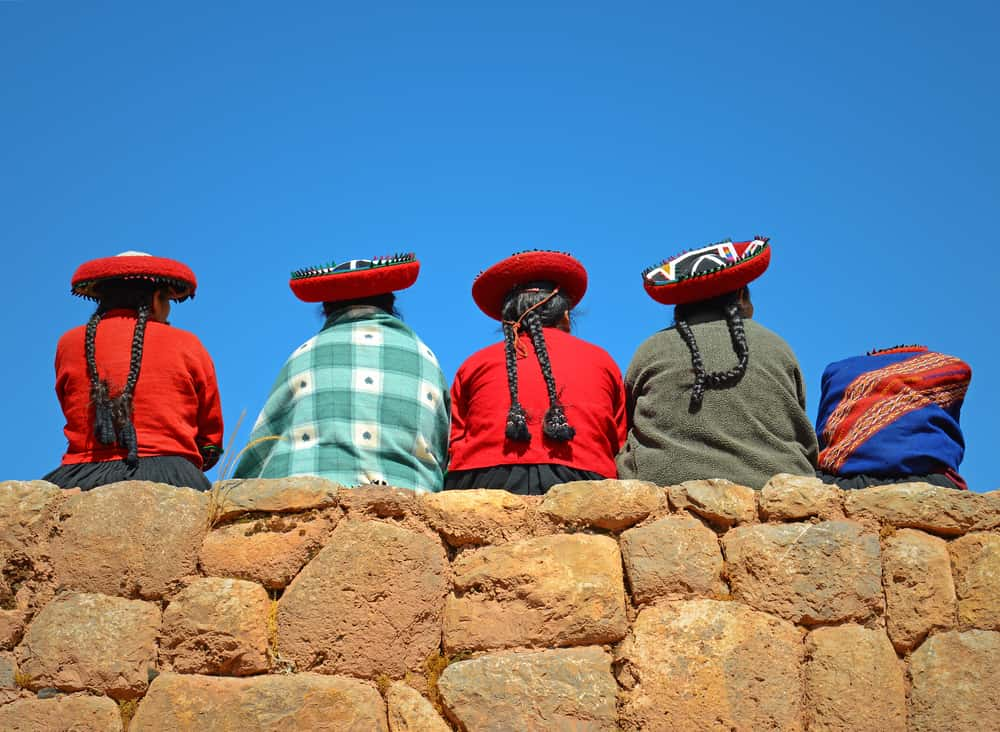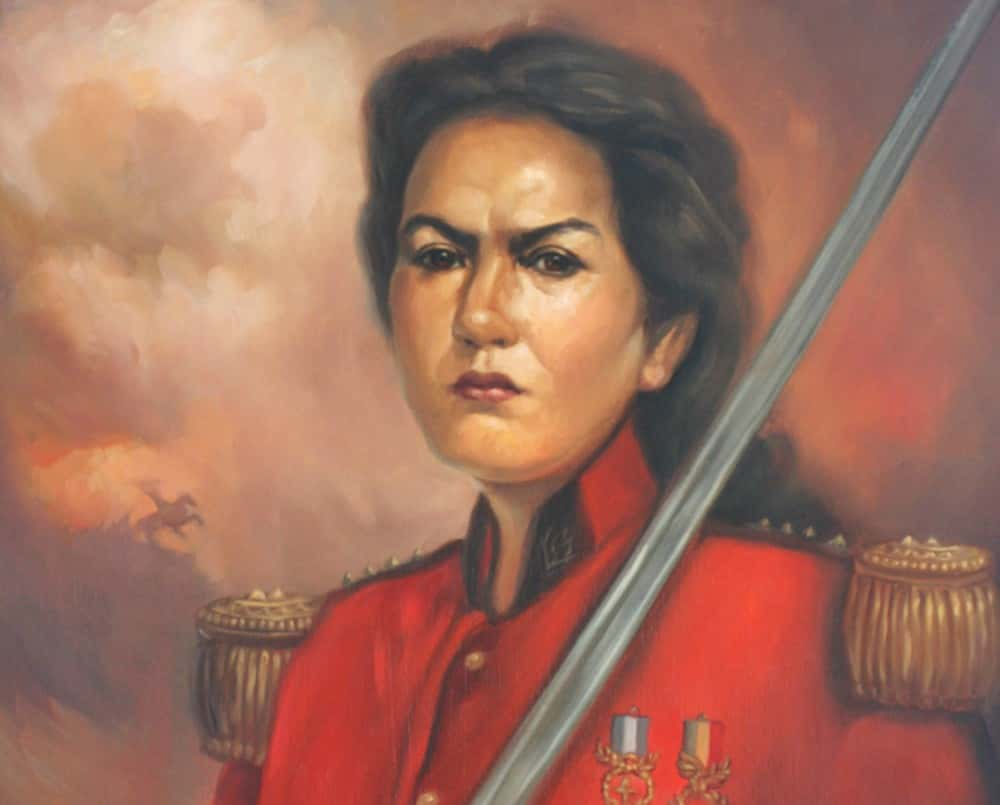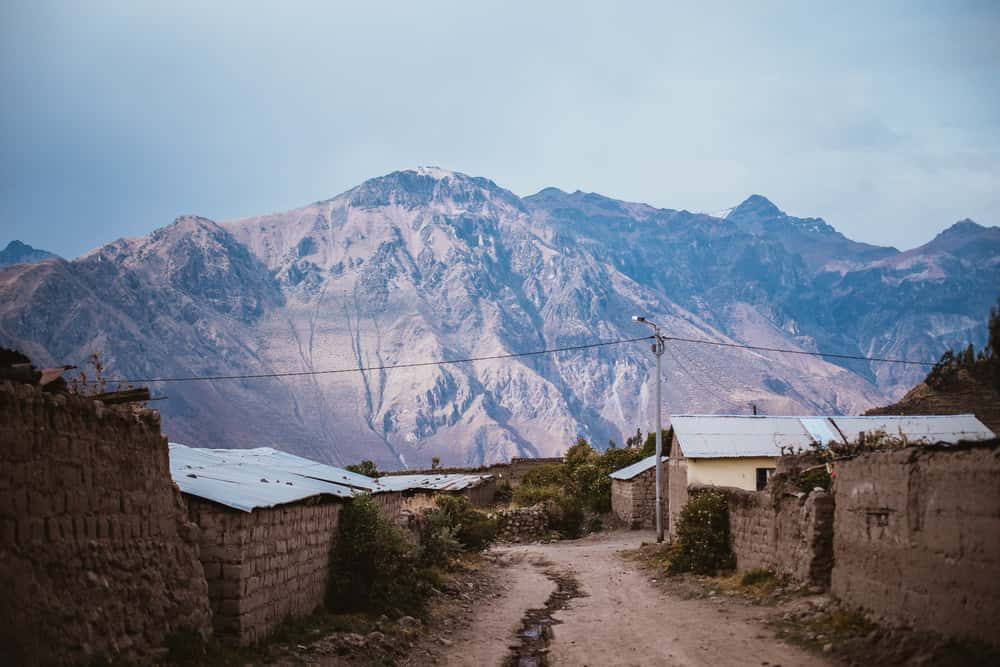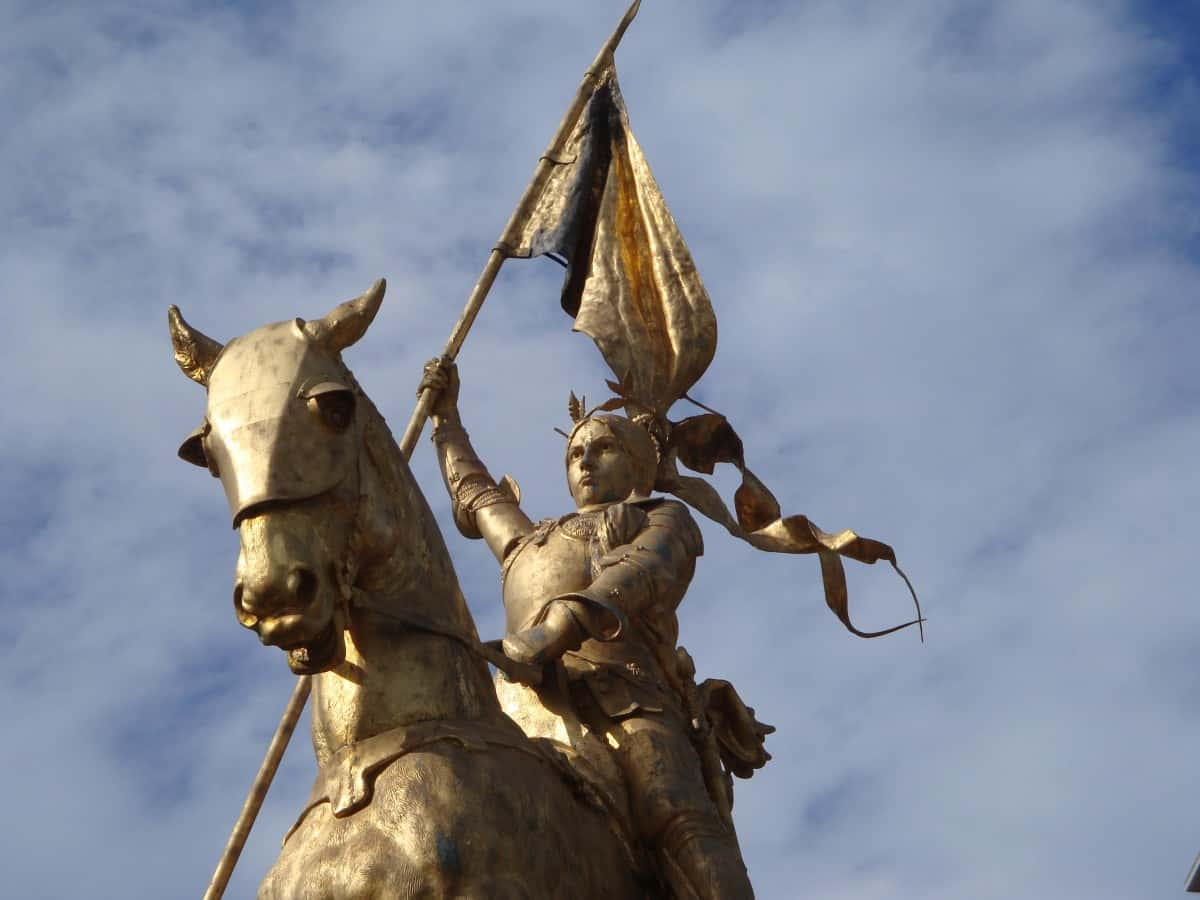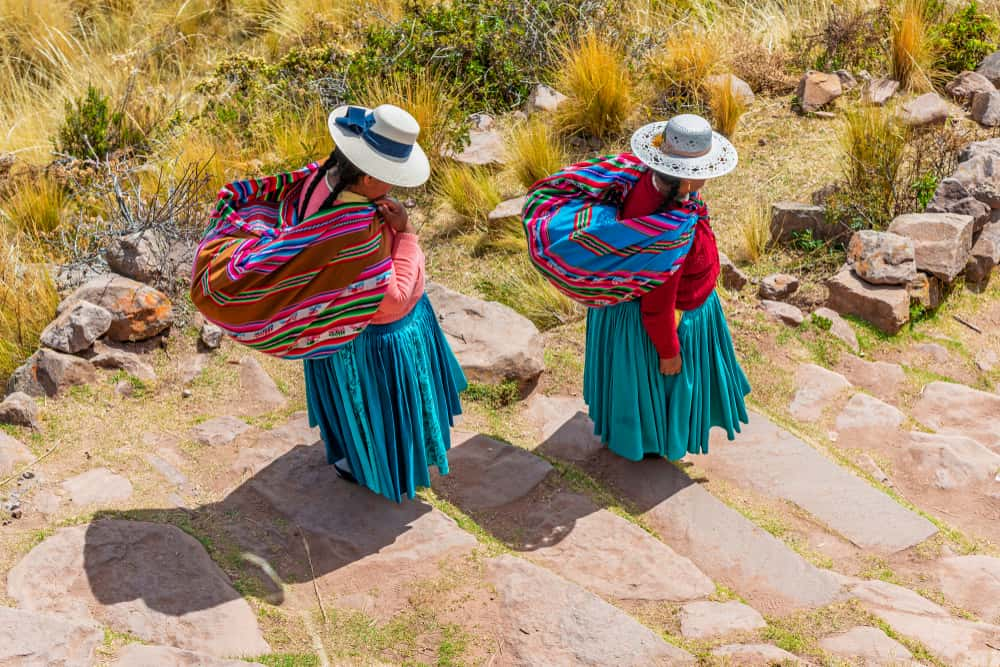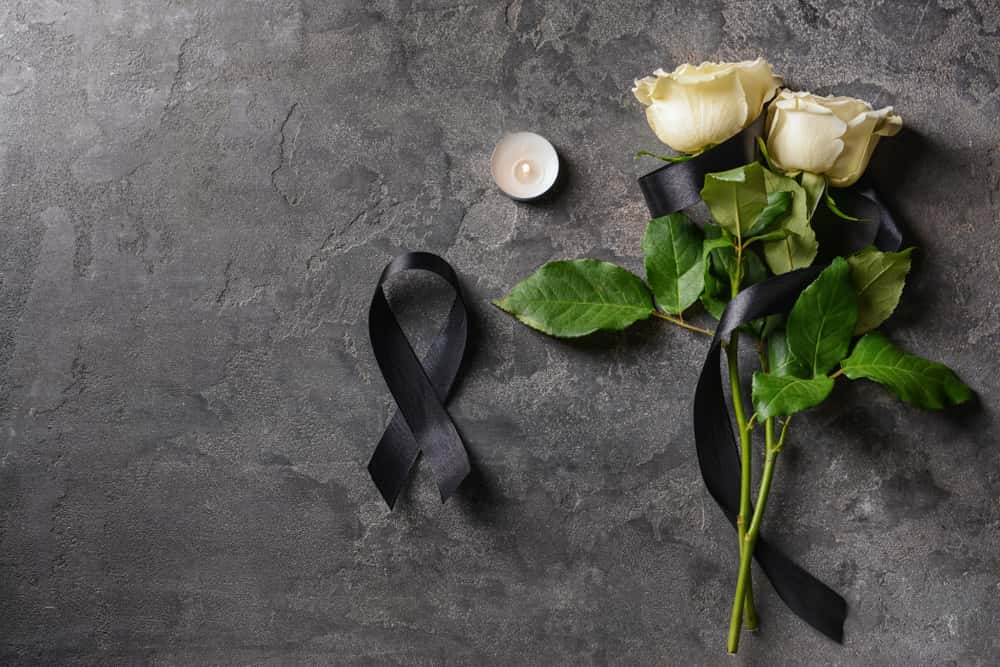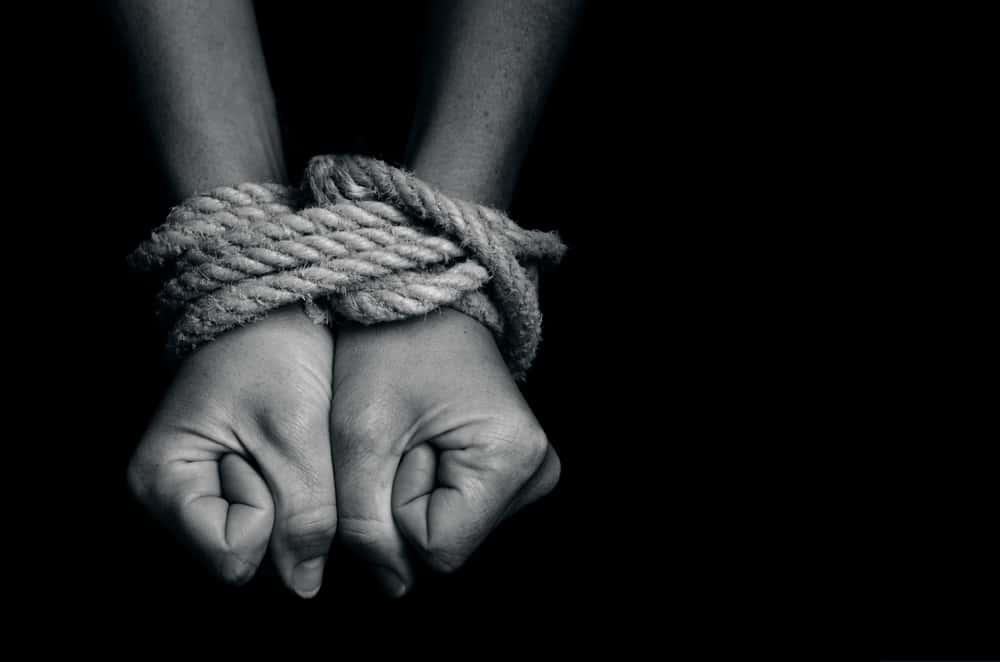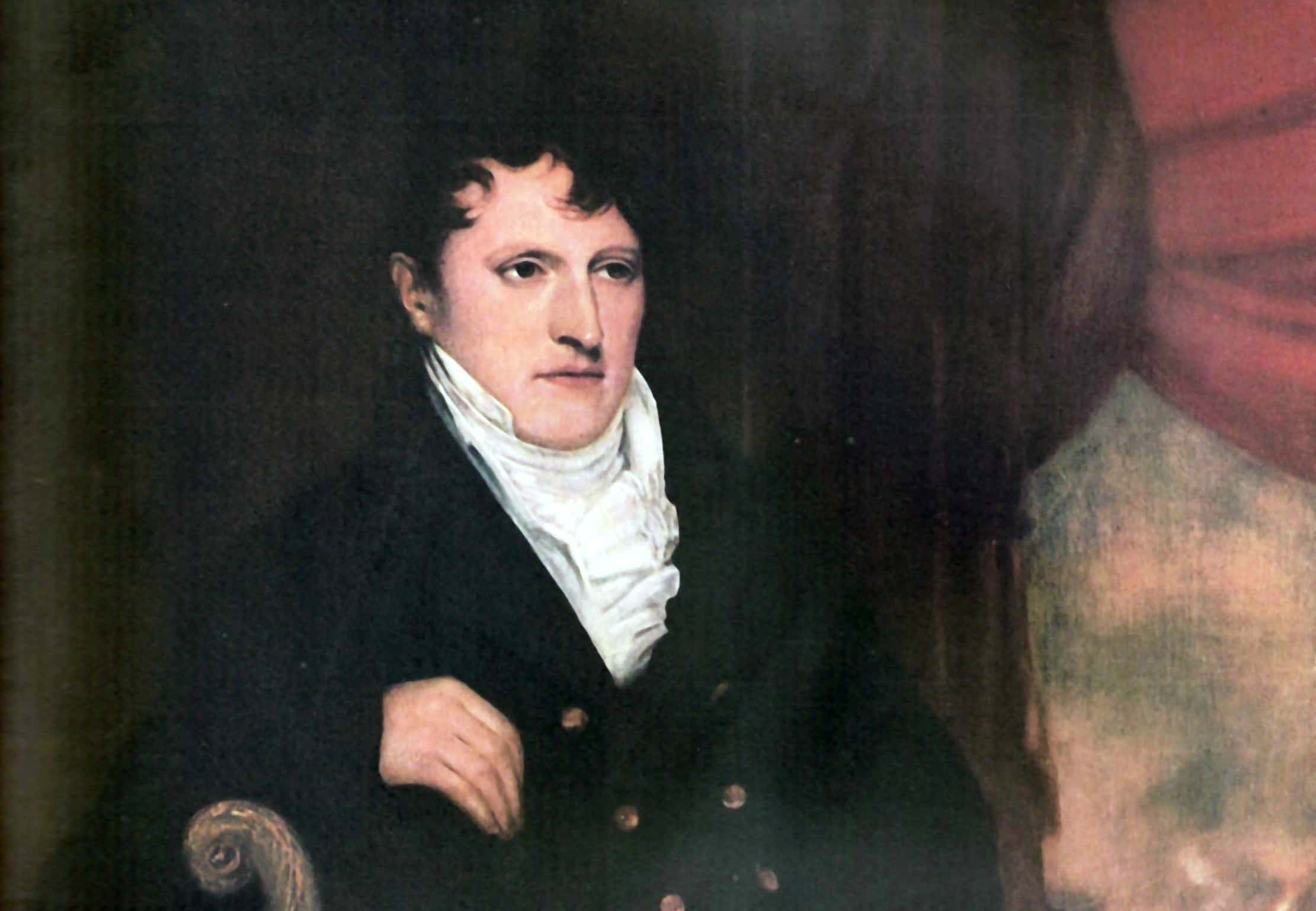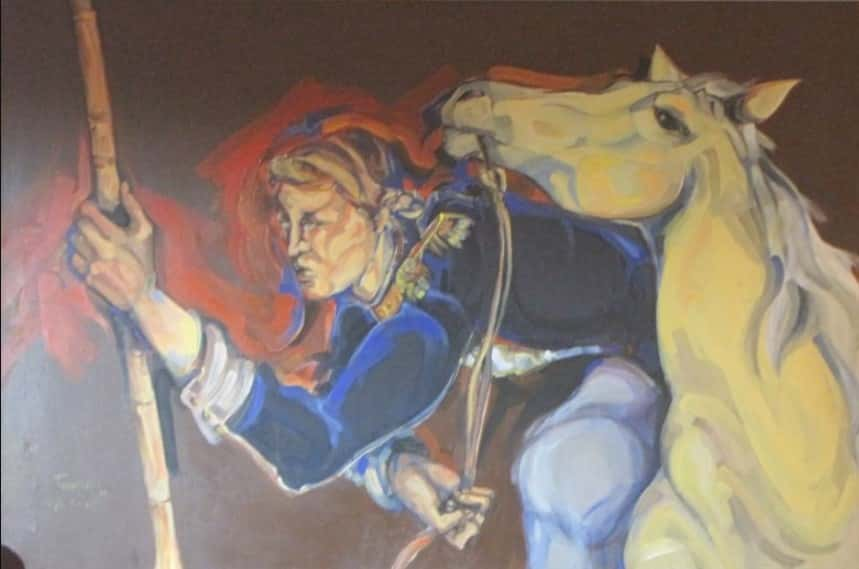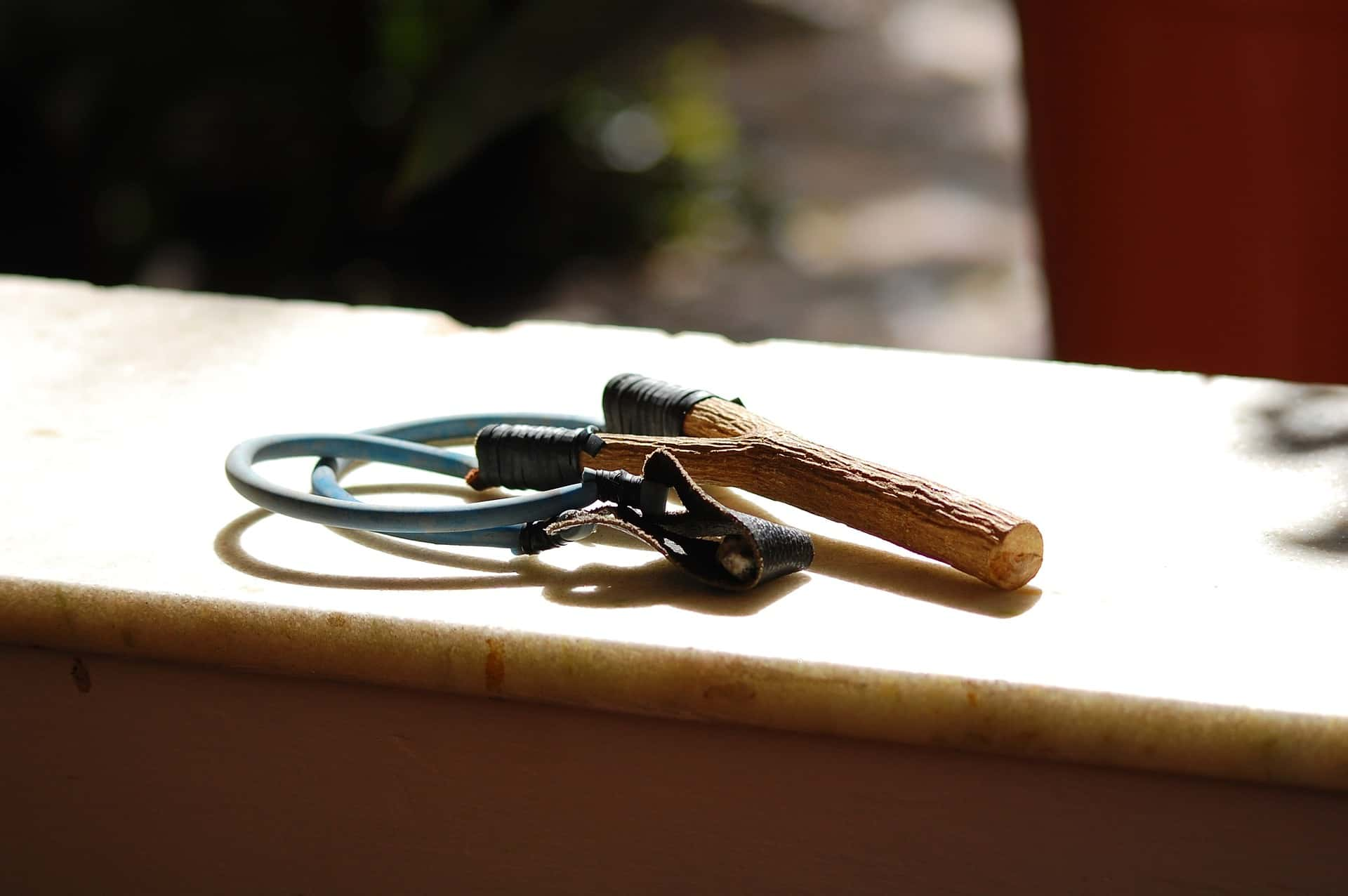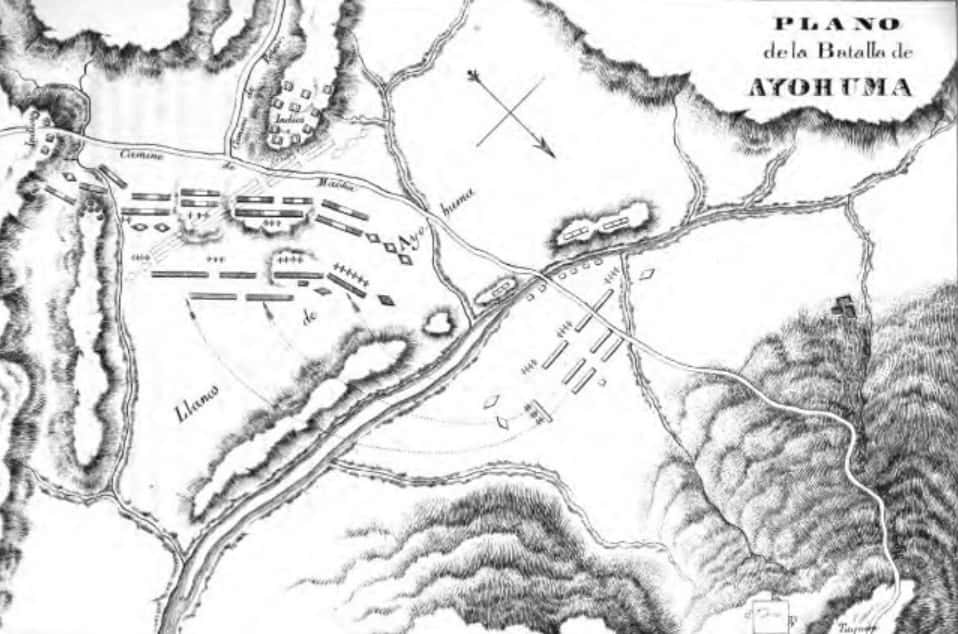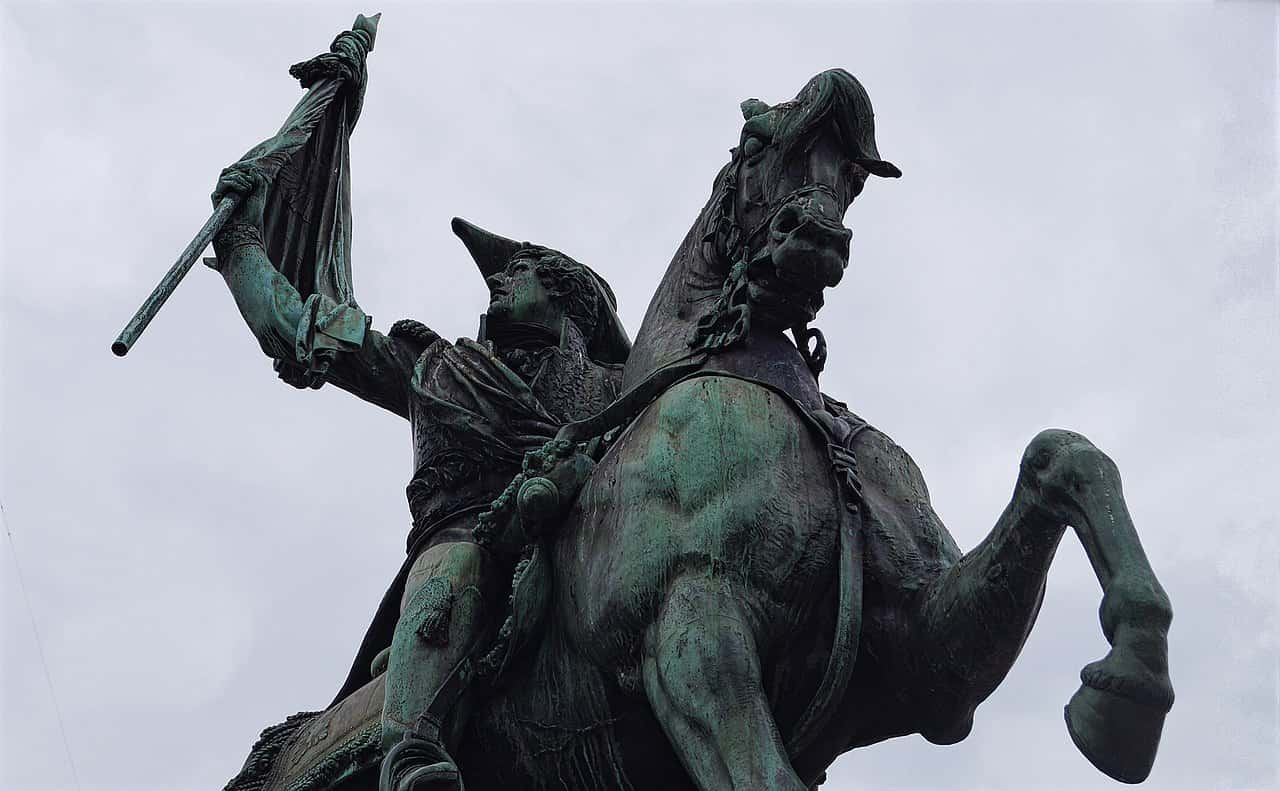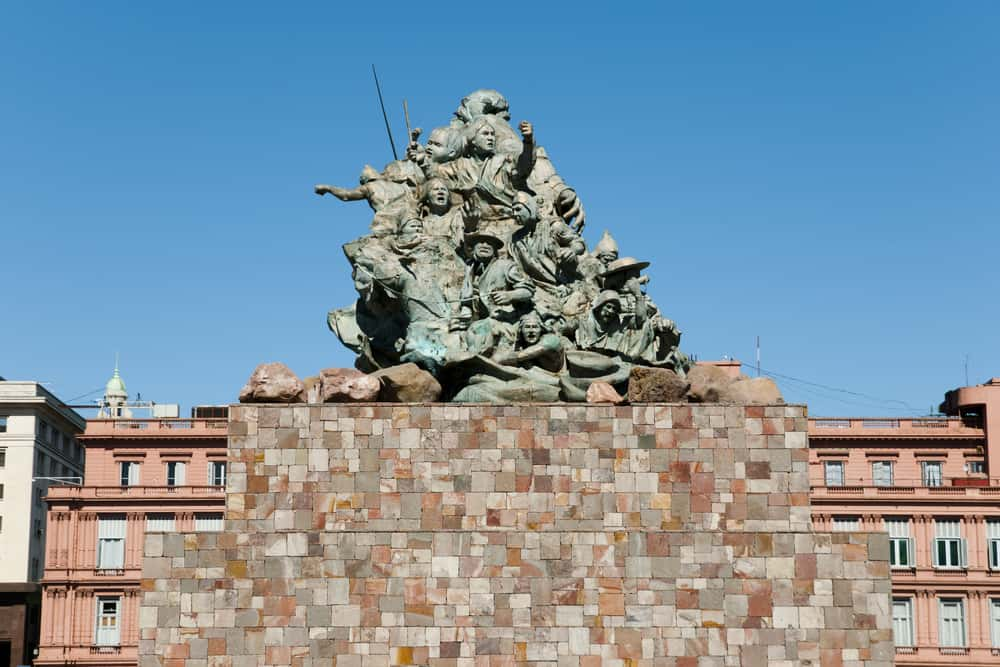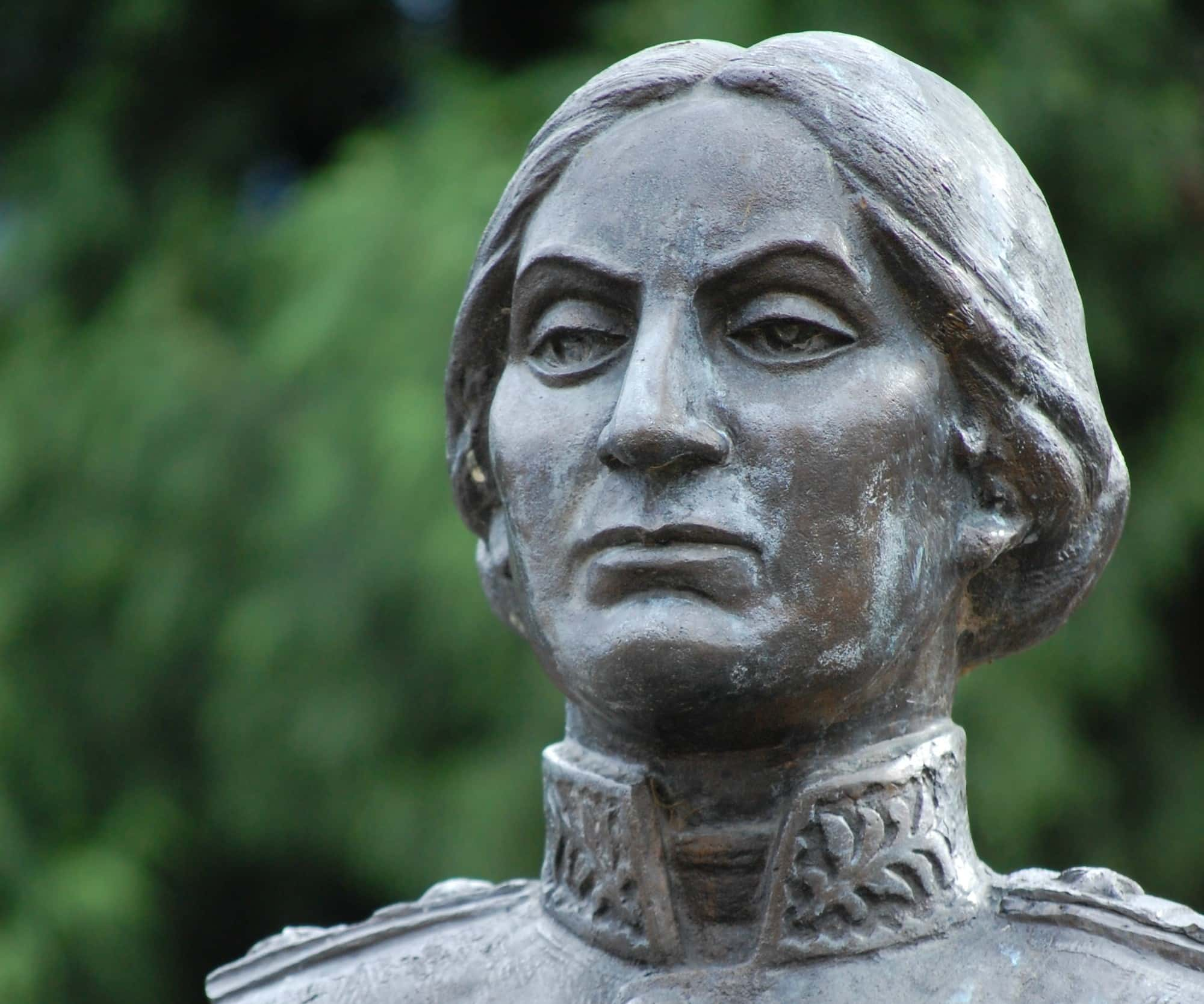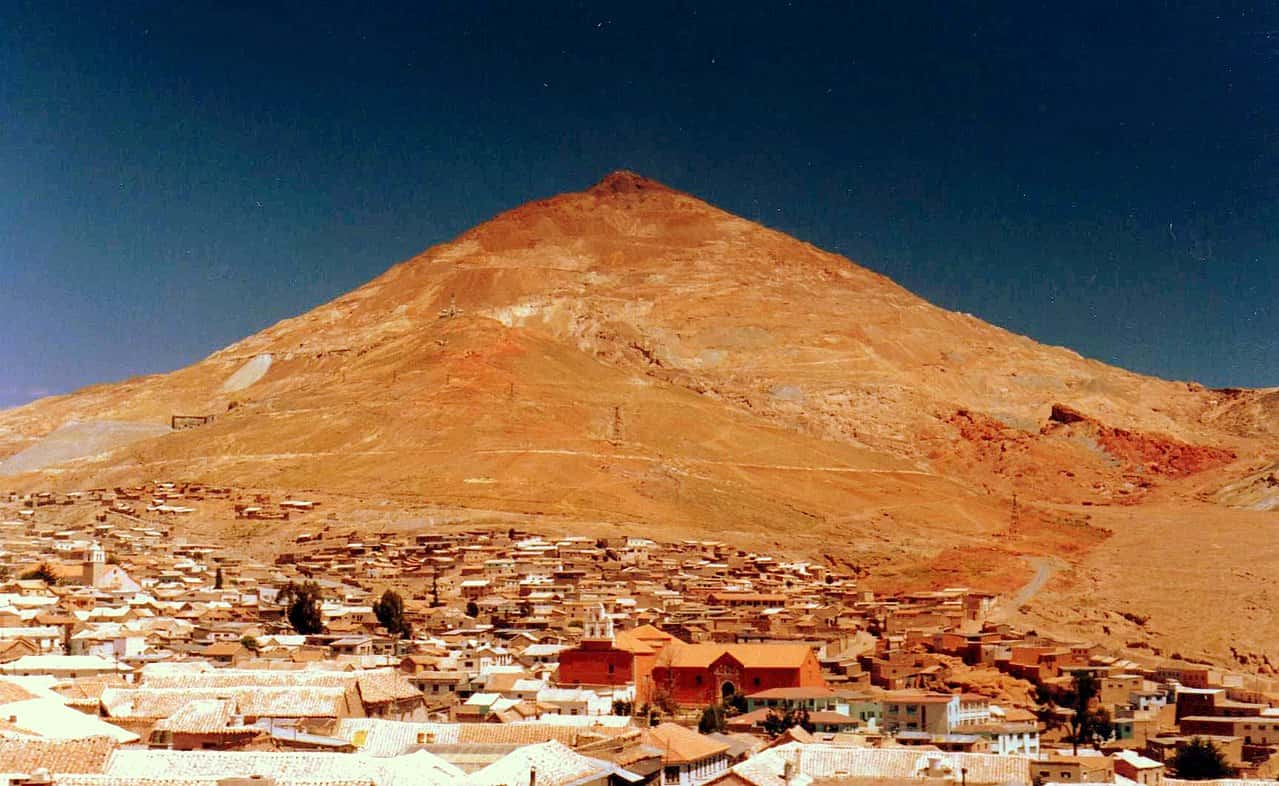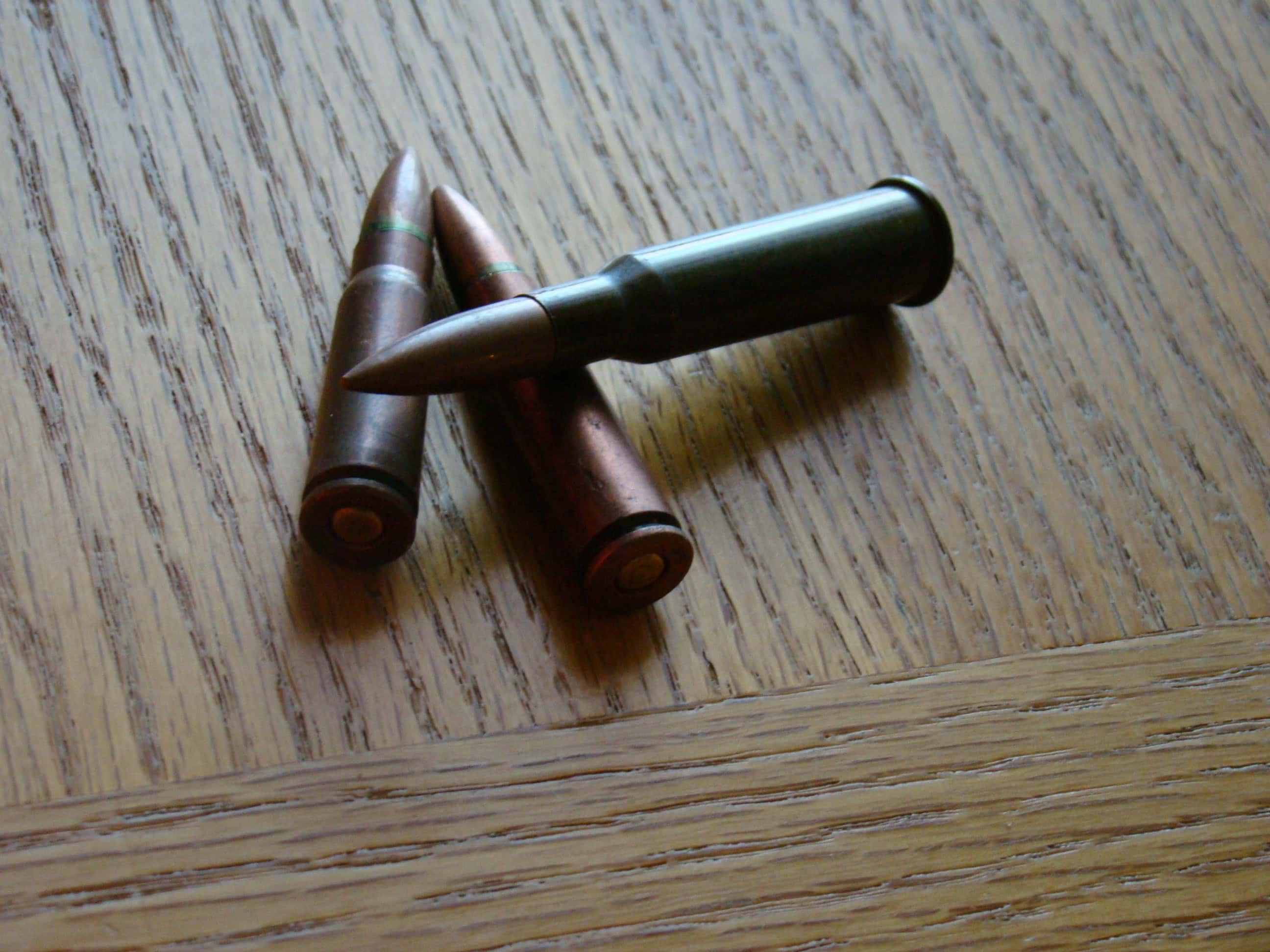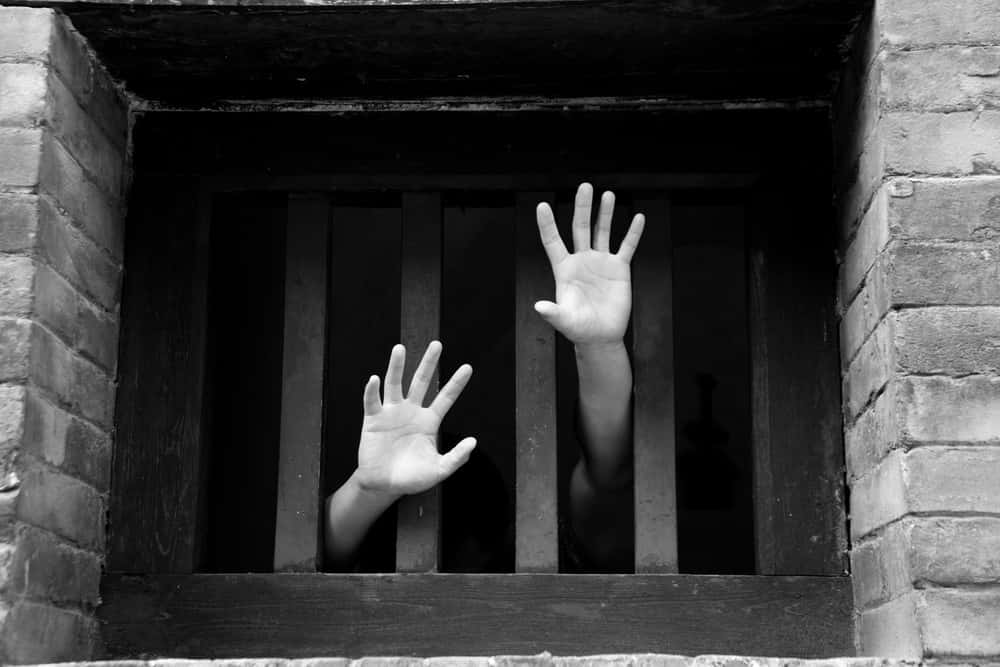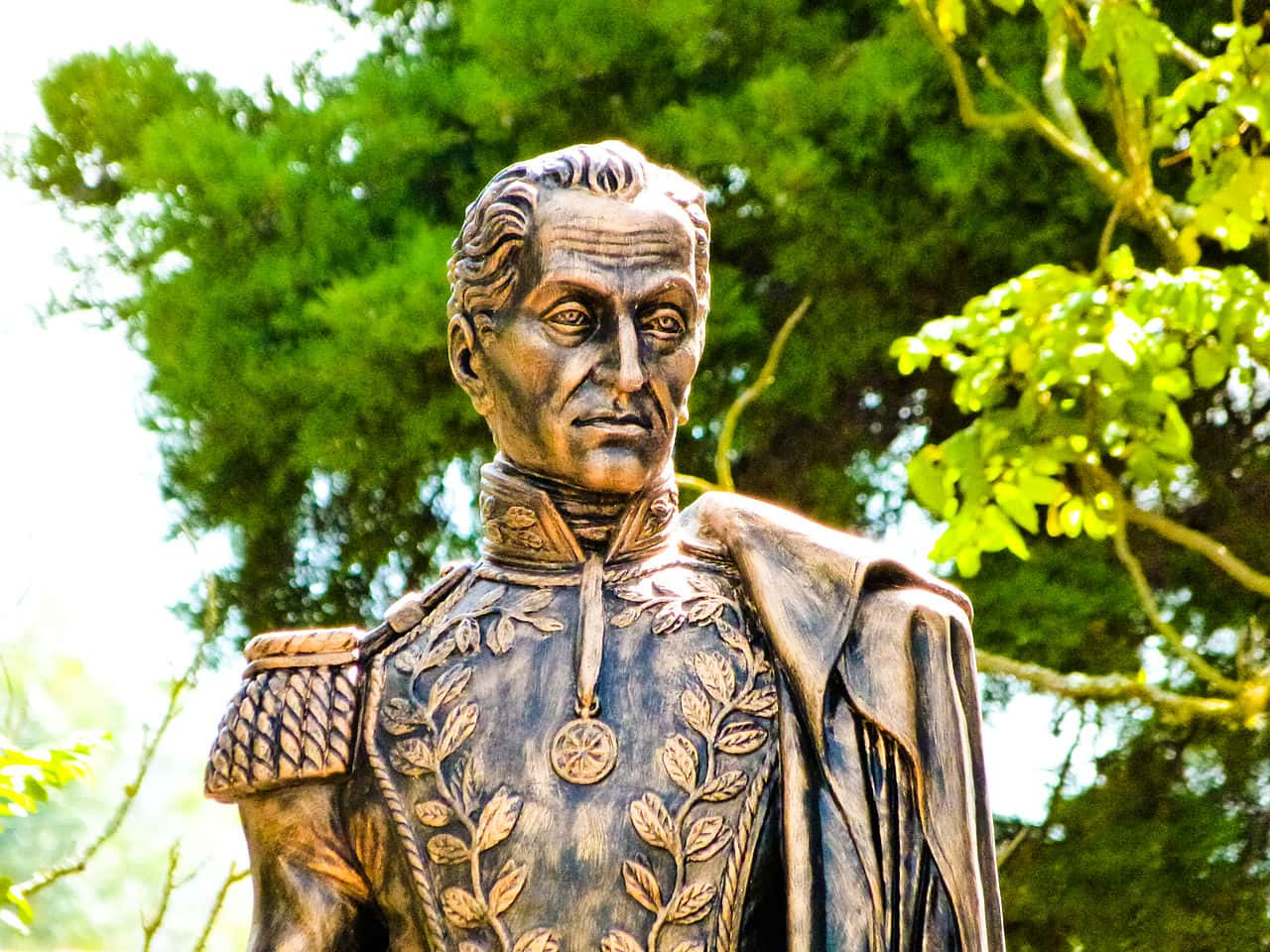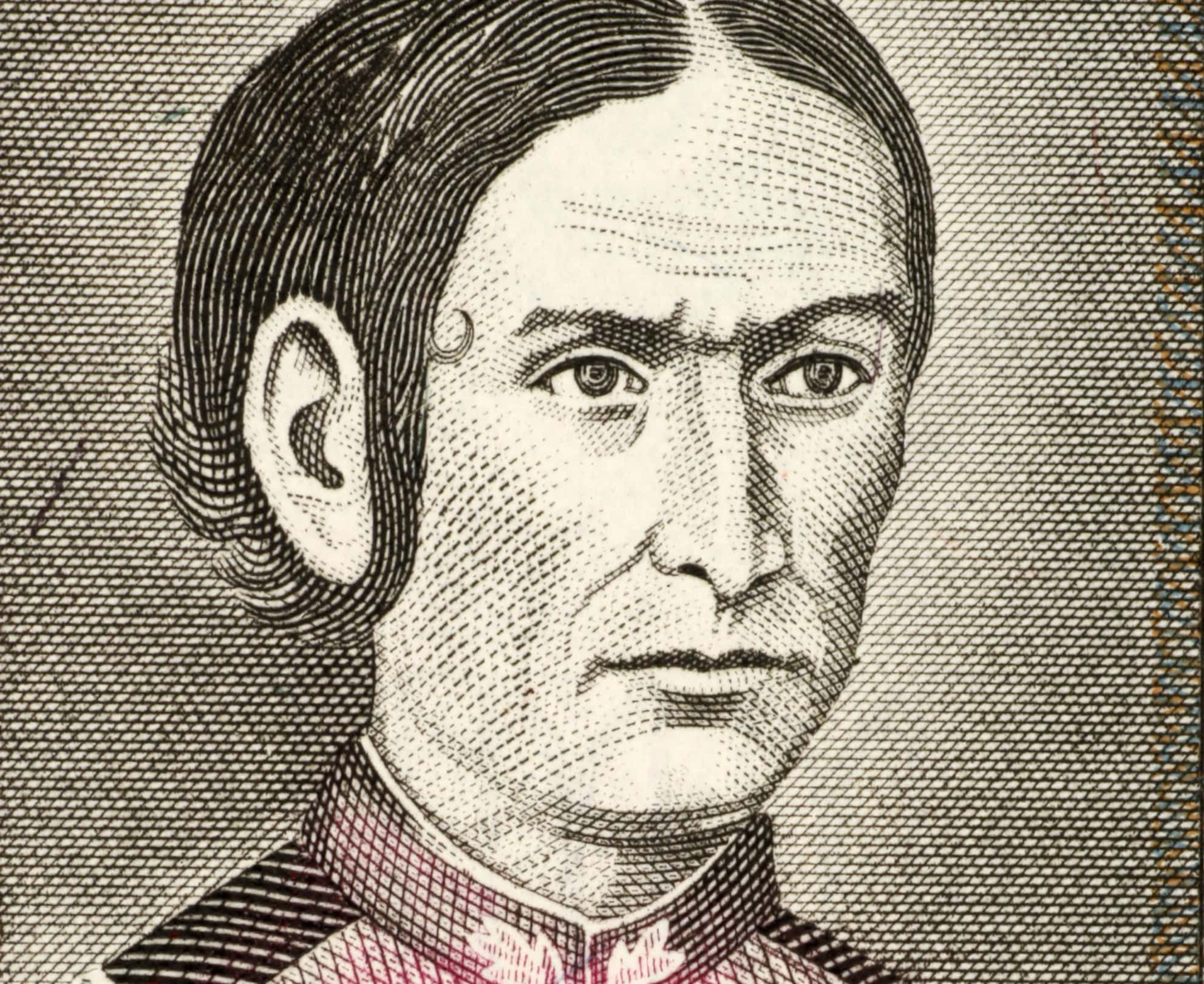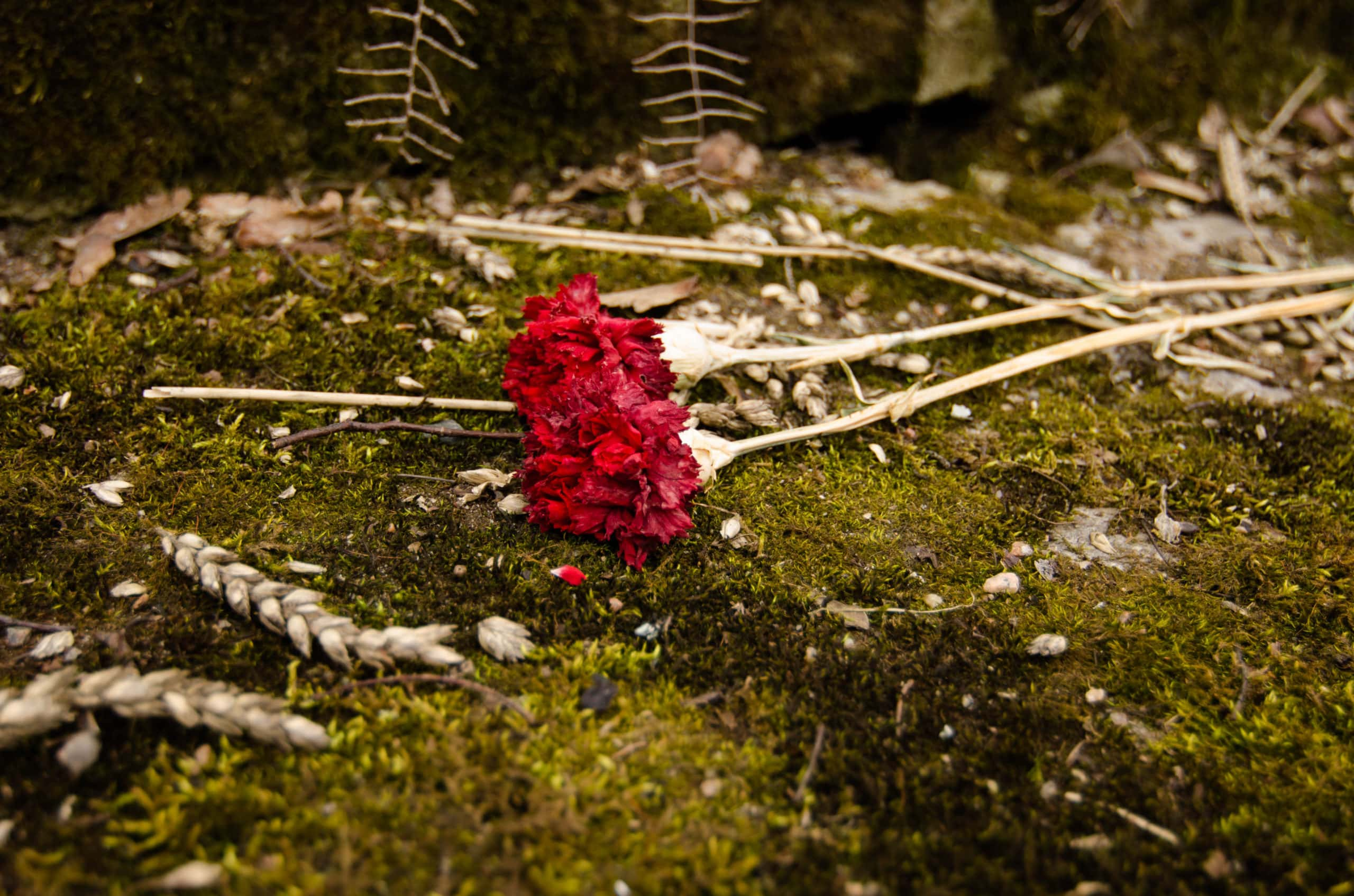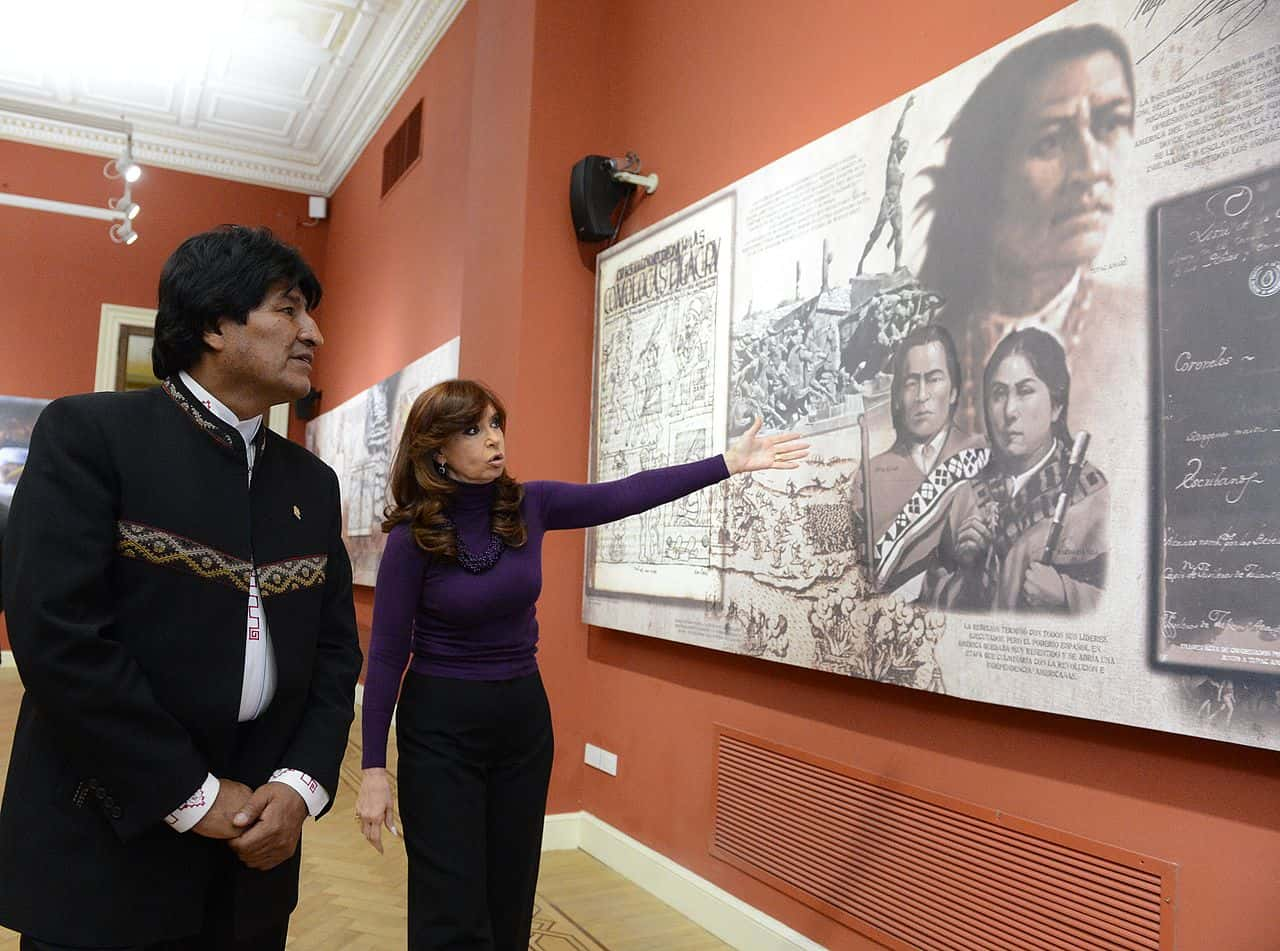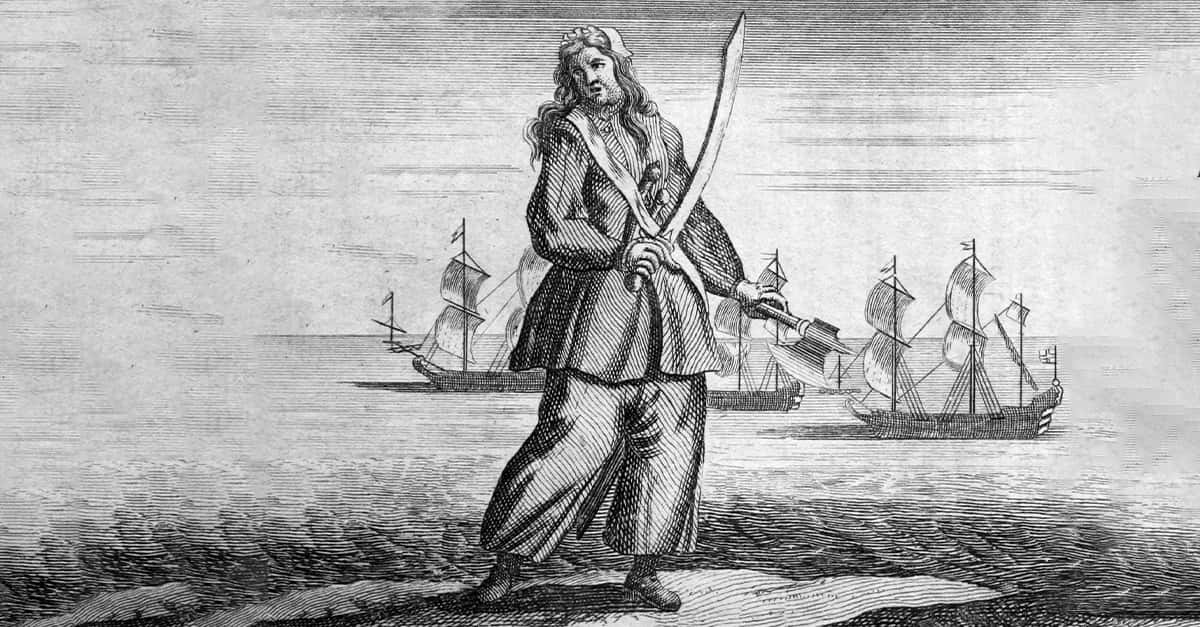The Warrior Woman Who Brought Down An Empire
Throughout history, certain figures have left their mark in ways that no one else has been able to match. Without question, Juana Azurduy de Padilla is one of them. Azurduy was one of the most influential and successful martial figures in South America’s history, as well as a trailblazer for women and indigenous people’s roles on the battlefield. Whether as commander of large guerilla forces or as leader of an official army division, Azurduy never missed a battle and never backed down.

1. Things Were Different When She Was Born
Juana Azurduy de Padilla’s life began in 1780 in what was then known as Chuquisaca, Upper Peru. Today, the town’s name is Sucre—and it is the capital city of the nation of Bolivia. The people of Chuquisaca might not have realized anything special had happened that day, but her birth would forever change the course of their history.
2. She Had A Diverse Family Background
Azurduy came from unique origins. Her parents had very different backgrounds, both ethnically and socioeconomically. Her father was a white, Spanish landowner while her mother came from a poor, partially-indigenous family. The locals of Upper Peru in the 1780s called people with mixed ethnicities mestizos.
3. Her Background Mattered At The Time
Now, you might be wondering what difference the ethnicity of Azurduy’s parents makes. Well, even though the origins of someone’s family might not mean much to us today, in those days it meant everything. The Spanish colonial government that existed at the time had a system that divided everyone into different societal castes based on their family lineage. As a result, Azurduy’s background affected many aspects of her life and expected role in society.
But the Spanish would soon learn that putting Juana Azurduy de Padilla in a box was no easy task.
4. She Suffered Many Losses As A Child
There were many challenges in Azurduy’s life, starting with her difficult childhood. Her family suffered multiple tragic losses while she was growing up. First, Azurduy’s older brother passed as a young child. Then, when Azurduy was seven, her mother also passed. It’s hard to imagine the effects that such losses can have on a small child.
5. She Had A Special Bond With Her Dad
The loss of one’s mother at a young age would surely leave a lasting impact on anyone, and Azurduy’s case was no exception. But in addition to the sadness it likely invoked, the loss of her mother also brought about a key component of Azurduy’s upbringing that would affect the person she became forever: Her extremely close relationship with her father.
6. Her Upbringing Defied Gender Norms
Azurduy’s father began to raise her on his own from that point on, and this caught many people’s attention. In a society where strict gender roles were the norm, it was bizarre to see a man teaching his daughter the things he taught Azurduy—things like riding, shooting, and working skills that most girls at the time never learned.
7. She Got To Know The Locals
Azurduy’s connection to the indigenous population of Upper Peru began during the period where her dad was teaching her to work. She spent a great deal of time around the locals while working alongside them on her father's land. This experience definitely planted another seed in Azurduy’s mind, and would shape the hero she'd become.
 Juana Azurduy, Guerrillera de la Patria Grande (2016), Fundación Grupo Ukamau
Juana Azurduy, Guerrillera de la Patria Grande (2016), Fundación Grupo Ukamau
8. She Spoke Several Languages
Azurduy developed a strong affinity for the local indigenous population. She began to spend a lot of her time around them, and even learned their languages. In addition to Spanish, Azurduy became fluent in both Quechua and Aymara, two languages native to the region where she lived.

History's most fascinating stories and darkest secrets, delivered to your inbox daily.
9. She Suffered Another Loss
After he had been her close mentor for most of her formative years, Azurduy’s father passed when she was in her early teens. This was a devastating blow to Azurduy and her younger sister. Suddenly, they were both orphans. Even though she was still only a young girl, Azurduy had already endured a tremendous amount of suffering.
But Juana Azurduy de Padilla wasn't about to let something as trivial as the death of her entire family slow her down.
10. She Moved In With Her Aunt
Following their father’s passing, Azurduy and her sister went to live under the care of their aunt. Their father had left them a lot of property, and their aunt was responsible for looking after it until they were old enough to take care of it themselves. These changes would mark the beginning of a new chapter in Azurduy’s life.
11. People Called Her A Problem Child
While living with her aunt, many adults started to view Azurduy in a very negative light. They thought it was inappropriate for a girl to be engaging in traditionally male activities as Azurduy did, and they began to view her as a mischievous and problematic child. This led to a number of efforts to rein in her behavior and change who she was. Bet you can guess how that went...
12. She Shunned Efforts At Changing Her
Azurduy’s aunt hired a tutor as her first attempt to reign in her wild spirit. The tutor was tasked with teaching Azurduy both proper social skills and positive academic habits. Unfortunately for the aunt, Azurduy was not interested. She continued her undesirable behavior—if anything, she only got worse.
13. She Become A Nun
Azurduy developed a rebellious attitude towards her aunt and the efforts to curb her behavior. Eventually, her aunt could no longer handle it all, so she sent the future fighter off to live in a convent and become a nun. This decision marked the beginning of yet another new and crucial chapter in Azurduy's life.
14. A Legendary Figure From History Inspired Her
Another life-changing event took place during Azurduy's days in the convent. When learning about the medieval heroine Joan of Arc, Azurduy became inspired and decided she would dedicate her future to glory on the battlefield. Some of her classmates remembered her stating this intention at the time. Bet they didn't expect her to go out and do something about it—but that's just what she did.
15. The Convent Kicked Her Out
Even though the convent introduced Azurduy to her new hero, she still did not have such a pleasant experience while living there. She frequently misbehaved, rebelled, and got into fights with the nuns who oversaw her. As a result, the institution permanently expelled Azurduy when she was 17 years old. Yeah, coulda seen that coming.
16. She Saw A Problem And Wanted To Help Solve It
After getting kicked out of the convent, Azurduy returned home—and this is when her legend truly started to grow. Upon her return, she got a more intimate view of the indigenous workers' grueling lives. Already imbued with a fighting spirit and an affinity for these people, seeing their hardships sparked a fire in her soul. She felt that something needed to be done to help them once and for all.
17. She Married A Like-Minded Individual
Azurduy soon married Manuel Ascencio Padilla, a neighbor and childhood friend of hers who shared her feelings towards the plight of the indigenous and the idea of revolution on their behalf. He felt so strongly about this issue that he even dropped out of law school to devote himself to the cause. It was a match made in heaven.
18. She Had A Supportive Spouse
Despite the times, Azurduy’s new husband was surprisingly cool with his wife’s many progressive social habits. He supported her pursuit of leadership roles in the revolutionary movement and, unlike many of the adults in her life during childhood, he took no issue with her interest in expanding beyond the horizons of what was acceptable for girls back then.
19. She Lost Two Sons
In the early years of their marriage, before their efforts on the battlefield began, the couple had two sons who would both tragically pass at very young ages. Disease and malnutrition were the main causes of this tragedy. One cannot even begin to imagine what this was like for the young couple to have to go through.
20. They Had A Major Victory Early On
The couple began its military career when it participated in the 1809 Chucisaqua Revolution in Azurduy’s hometown. As soon as this opportunity presented itself, the couple jumped on board and helped to successfully oust the region’s governor. With that, the couple’s revolutionary ways were off to a strong start—but the Spanish weren't about to lie down and let the revolutionaries have their way.
21. She Spent Time As A Captive
As the fighting continued in 1811, Azurduy faced her biggest challenge yet. The enemies took her captive after a fierce battle. The Spanish army barricaded her inside her home and guarded her carefully at all times. It seemed like her story had ended before could even begin—but of course, that's not what happened. Her husband eventually staged a daring rescue, taking out all the Spanish guards and freeing her.
22. Fleeing The Country Didn’t Stop Her Efforts
After escaping to a new region, the couple resumed their efforts at organizing rebellious activities against the ruling powers. Once a fighter, always a fighter! They refused to give up after the experience of being captured, and instead joined an army in Buenos Aires with the intention of fighting their detested rulers from the outside.
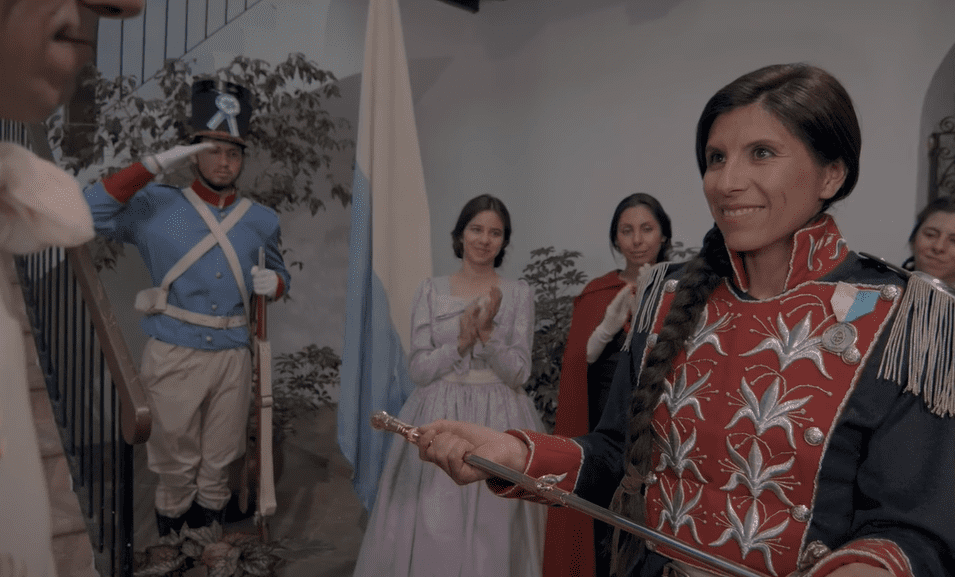 Juana Azurduy, Guerrillera de la Patria Grande (2016), Fundación Grupo Ukamau
Juana Azurduy, Guerrillera de la Patria Grande (2016), Fundación Grupo Ukamau
23. They Made Big Plans, But Faced Setbacks
Azurduy and her husband never stopped putting their minds to work to find new ways to combat their enemies. They bravely tried to use their new position outside of Upper Peru in an attempt to physically prevent an invasion of the region by Spanish forces. Sadly, though, this effort was unsuccessful and the rebels lost.
 Juana Azurduy, Guerrillera de la Patria Grande (2016), Fundación Grupo Ukamau
Juana Azurduy, Guerrillera de la Patria Grande (2016), Fundación Grupo Ukamau
24. Her Enemies Made It Personal
Losing the battle was not the only sad result of this episode for Azurduy. The Spanish fighters were not very kind to the rebels that they defeated. They confiscated Azurduy’s property and took her children hostage. Luckily, she and her husband managed to heroically rescue them before fleeing to the mountains to hide out.
 Juana Azurduy, Guerrillera de la Patria Grande (2016), Fundación Grupo Ukamau
Juana Azurduy, Guerrillera de la Patria Grande (2016), Fundación Grupo Ukamau
25. She Organized The Masses
When General Manuel Belgrano took over a rebel army, Azurduy returned to her fighting ways. She joined his forces and became an extremely successful recruiter for their cause. According to estimates, she recruited a whopping 10,000 fighters to join these ranks, many of whom were indigenous people inspired by Azurduy’s love of their heritage.
26. She Got A Lot Of Women Involved
Azurduy’s recruitment abilities were historic not only because of how many fighters she was able to enlist, but also because of who many of those recruits were. Among her followers was a battalion composed entirely of female fighters. She named them the “Amazonas,” in honor of Greek mythology’s famous Amazons.
This is one of the many reasons that people today consider Azurduy a pioneer of women’s involvement on the battlefield.
27. The Amazonas Fought Hard
These women were fierce fighters, but battle of any kind is no easy task—let alone one against a powerful colonial army. Although the Amazonas managed to capture and control some territories in the mountains, the Royalist enemies eventually broke through. Even then, the Amazonas heroically fought them off until the rebel leaders could flee to safety.
28. People Trusted Her With Their Lives
The indigenous populations trusted Azurduy so deeply that she soon became the leader of the “Loyal Battalions.” As its name suggests, this division of rebel forces had a policy of uncompromising loyalty to whoever was leading it. It consisted almost entirely of indigenous men and women.
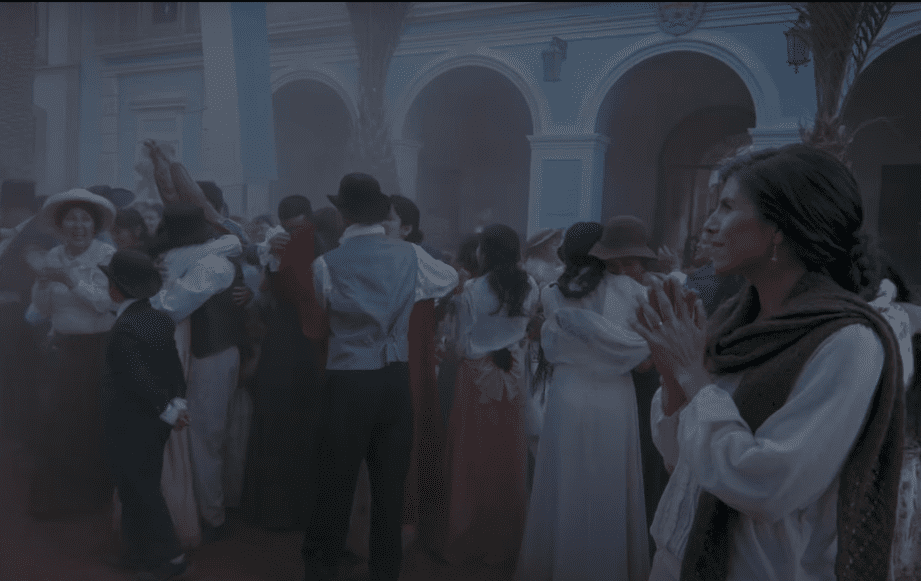 Juana Azurduy, Guerrillera de la Patria Grande (2016), Fundación Grupo Ukamau
Juana Azurduy, Guerrillera de la Patria Grande (2016), Fundación Grupo Ukamau
29. She Made Do With Whatever She Had
When Azurduy began her role as leader of the Loyal Battalions, she didn’t have a whole lot to work with. Her fighters didn’t have modern weaponry and had to rely on fighting with things like slingshots and wooden spears. Luckily, they also had an unmatchable spirit and belief in their cause, which would prove to more than make up for what they were lacking.
30. She Fared Better Than Her Male Counterparts
Even with their limited equipment, Azurduy and her loyalists managed to beat back some of the Spanish forces during 1813’s Battle of Ayohuma—an incident that was otherwise a major failure and setback for the rebel forces. Azurduy’s ability to outperform some of her fellow rebel leaders on the battlefield definitely caught some attention...
31. She Received A Serious Honor
Like many others, General Manuel Belgrano found Azurduy’s leadership abilities extremely impressive. In a bold move, he awarded Azurduy his sword as a token of his respect for her—probably one of the first times in history that someone bestowed such a serious military honor onto a woman.
32. She Changed Her Fighting Style
Following this triumphant moment in Azurduy’s career, things took a very different turn. The allies of her rebel forces retreated and Azurduy, along with her husband, adopted a new strategy of guerilla warfare from this point forward. Unfortunately, things were about to get a lot rougher for the Padilla couple…
 Juana Azurduy, Guerrillera de la Patria Grande (2016), Fundación Grupo Ukamau
Juana Azurduy, Guerrillera de la Patria Grande (2016), Fundación Grupo Ukamau
33. Her Dedication Was Epic
Unlike most military leaders, Azurduy didn’t just command her forces—she also did some of the actual fighting herself. This sometimes made for some interesting moments—such as the time she had to leave the battlefield in the middle of a fight in order to give birth to one of her sons. That’s the stuff of legends!
34. Nothing Could Distract Her From Her Efforts
Fans of Azurduy’s legacy have passed down many legends and stories of her heroism over the years. In one of the greatest such stories, she returned to the battlefield immediately after giving birth to her fourth son and resumed fighting as if it was just a regular day. Now that is true dedication to a cause!
35. She Got Results, No Matter What
But the story gets even better. Not only did Azurduy continue to fight on the very day she had given birth to her son, but legend has it that she also managed to personally capture the flag of the enemy forces after handing them defeat in battle. I guess that new motherly instinct paid off for her!
36. Her Fortunes Changed For The Better
The victories kept coming for Azurduy at this point. She and her Amazonas launched a shocking surprise attack on a group of Spanish forces in March 1816. They defeated them handily and, once again, captured their flag—but this time, that wasn’t all they captured. The team swiped a huge stockpile of serious, modern weapons from the Spanish, completely changing the name of the game.
37. She Hit Them Where It Hurt
That same year, Azurduy and company managed to conquer and take control of the Cerro Rico of Potosi. That name might not ring a bell to you, but rest assured it meant plenty to the people of this region at the time. This spot was the Spanish Empire’s main source of silver in the region. Without control of the mountain, the royalist rulers could not access their primary source of wealth.
38. She Made History In Yet Another Way
Following this stretch of one major victory after another for Azurduy, Argentinian General Juan Martin de Pueyrredon granted her an unprecedented honor. In August 1816, he bestowed upon her the formal rank of Lieutenant Colonel. This honor made Azurduy history’s first-ever woman to receive an official military rank. She probably wished 1816 would never end!
39. The Enemy Wounded Her
Unfortunately, luck can change in the blink of an eye, and Azurduy learned that the hard way. Her first stroke of bad luck came during September 1816’s Battle of La Laguna, in which enemy forces shot and injured her. To make matters worse, she was pregnant at the time. Luckily, the shot was not fatal and she managed to recover—but she was far luckier than her husband.
40. She Suffered Another Personal Tragedy
Things went from bad to worse for Azurduy during the Battle of La Laguna. After the enemy shot her, her husband tried to run to her aid to rescue her. In the process of doing so, they shot him too. Once he was down, the Spanish forces took him captive—and they showed no mercy. They beheaded him within a few days of his capture and publicly displayed his head on a pike.
41. Things Took A Turn For The Worse
This sudden change of luck marked a drastic adjustment for Azurduy. She was now pregnant, wounded, widowed, and losing control of her territory. Desperate, she had no choice but to flee the area and spend some time laying low in the nearby region of Salta. Just like that, her whole life and career had been thrown on its head.
42. She Fought For The Man She Loved
Even though Azurduy fled the territory she once controlled, she wasn’t going down without one last fight. She launched an unexpected counterattack on the group she had just retreated from, in order to try and recover the remains of her beloved husband’s body. After a lifetime of fighting alongside one another, how could we expect anything less than this final gesture of true love?
 Juana Azurduy, Guerrillera de la Patria Grande (2016), Fundación Grupo Ukamau
Juana Azurduy, Guerrillera de la Patria Grande (2016), Fundación Grupo Ukamau
43. Her Large Following Made A Difference
Just because she faced some setbacks did not mean that Azurduy was giving up her fight. She continued to lead her loyal followers into battle whenever an opportunity arose. She managed to win over control of an area on the Argentina-Upper Peru border, which she turned into an independent rebel zone. By this point, she had over 6,000 men serving under her command.
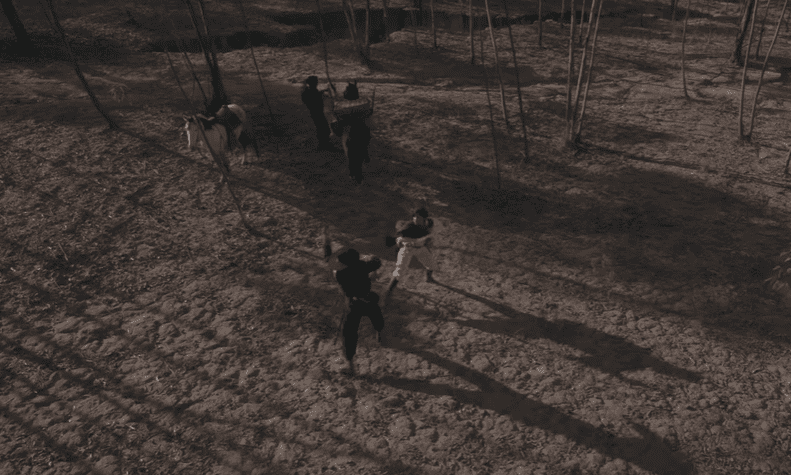 Juana Azurduy, Guerrillera de la Patria Grande (2016), Fundación Grupo Ukamau
Juana Azurduy, Guerrillera de la Patria Grande (2016), Fundación Grupo Ukamau
44. Her Lifelong Dream Finally Came True
In 1825, everything for which Azurduy had been fighting for her entire life finally came true. The nation of Bolivia finally declared its independence from Spanish colonial rule. Finally, after such a long absence, Azurduy could at last return to her hometown—the newly renamed Bolivian capital of Sucre. This just goes to show that perseverance does pay off in the long run.
45. She Had Friends In High Places
Azurduy had many fans in the newly independent nation of Bolivia—including the country’s first president and namesake, Simon Bolivar. The legendary figure once remarked: “This country should not be named Bolivia in my honor, but Padilla or Azurduy, because it was them who made it free.” That’s some serious recognition right there!
46. She Finally Moved On With Her Life
Although most of Azurduy’s biological children tragically passed during her fighting years, she adopted an indigenous child as her own in her old age. This adopted child lived a quiet lifestyle with Azurduy and her daughter outside of the public eye. Her new child also helped take care of her when she needed help in her later years.
47. The Government Betrayed Her
Ever since her retirement, Azurduy received a pension from the Bolivian government in honor of her vital service to the nation. Towards the end of Azurduy’s life, however, she suffered a cruel betrayal. New leadership implemented some bureaucratic policies in 1857 which resulted in the cancellation of her pension.
This meant that at the age of 77, the very government she had helped to establish was now turning its back on her and taking away her primary source of income.
48. Her Life Ended Tragically
Despite all she did for her country and its people, the public had largely forgotten about Azurduy in her old age and its gratitude seemed to disappear completely. She passed at the age of 82 after living out her final years in complete poverty. They buried her body in a communal grave, and no one bothered to make a big deal out of the loss of this national hero.
49. Bolivia Honors Her In Many Ways
Beginning about a century after Azurduy’s passing, people rediscovered her and started to appreciate her important role in history. The people of Bolivia have regarded her as a national hero ever since. In addition to the country dedicating an airport, a monument, and an entire province to her memory, they moved her body to a proper individual gravesite where she can be remembered and honored for generations to come.
50. She Faced A Posthumous Controversy
Controversy erupted in 2015 when Buenos Aires, Argentina replaced a statue of Christopher Columbus with a statue of Azurduy. City officials made the decision because they considered Azurduy to be more representative of the region’s indigenous population. Despite the controversy, a lot of people out there are happy to have a monument to this heroic woman in one of South America’s greatest cities.

